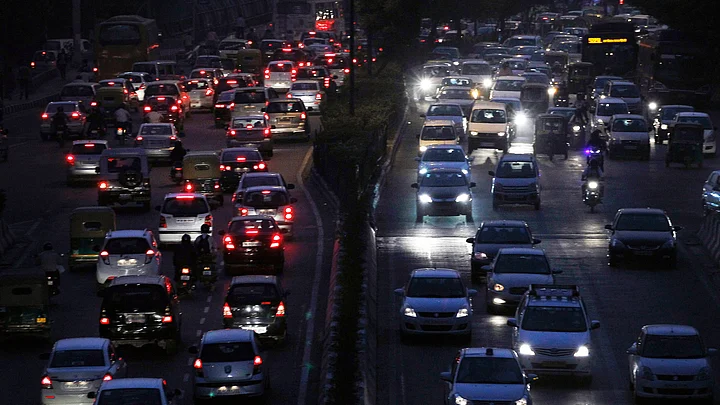Even as the Delhi government in a knee jerk reaction, has announced the drastic step to restrict vehicular traffic in the capital from New Year, it would do well to study the feasibility and practicability of its decision.
Reaction to the announcement of having alternate days of exclusively even-numbered and odd-numbered cars on Delhi roads has ranged from disbelief to shock. Social media has predictably been flooded with angry responses to jokes about how to beat the order. While some suggest that people who can afford another vehicle would go for it, the lesser affluent would go in for another two wheeler while those who do not have the means would go in for duplicate number plates with alternate registration numbers.
Novel Method or an Ill-Conceived Plan?
- Vehicle owners with limited means would go in for duplicate
number plates with alternate registration numbers
- For any implementation of the order, Delhi government will
have to depend on the police which, in case of Delhi, works under the union
home ministry
- Despite a Himachal Pradesh High Court order banning sale of cars unless owners can prove that one has parking space, the law
has been circumvented by residents
- Delhi government should take measures to strengthen public transport
system in order to reduce the number of single-occupancy cars
What the Delhi Govt Intends To Do?
One wonders whether it is a deliberate attempt by Arvind Kejriwal to dump another blame on the Centre. For any implementation of the order, the government will have to depend on the police which, in the case of Delhi, works under the Union Home Ministry. To take a decision without consulting the implementation wing raises doubts over the intention of the Delhi government. Unless the Centre concurs, there is no way such a decision can be implemented.
The general refrain is that it would add to the problem instead of providing a solution to the capital’s pollution and traffic congestion woes. More so because of the poor public transportation system and lack of infrastructure to take on the gigantic task. Delhi has 88.27 lakh vehicles with thousands coming in and going out from neighbouring states daily.
The Delhi government would have done better by studying the system adopted in other countries and even other cities in the country to curb congestion and pollution before making the shocking announcement.
The Shimla Model
Earlier this year, the Himachal Pradesh High Court banned the sale of cars, unless one can prove that one has parking space for new vehicles, in the former summer capital of the Raj. The court was forced to take up the issue due to perennial traffic jams on Shimla’s main roads which got worse during every tourist season.
As against a population of 1.69 lakh of the hill town, the number of cars registered was 80,000 (up from 16,450 in 1995). Traffic authorities conceded in court that at least 80 per cent of these vehicles had to be parked on the roadsides due to lack of parking facilities with the owners. Statistics showed that about 3,000 new vehicles were being registered every month. The high court pointed out that that besides causing congestion, the vehicles added to the pollution.
The directive was implemented in May this year and Shimla became the first big hill town in the country to ban the sale and registration of cars without proof of parking facilities. Under the new rules, prospective buyers had to get a no-objection certificate from the municipal corporation. In turn, the corporation instructed the local police to get a physical verification done to certify that the person had a garage or proper parking at his residence.
The new rules showed a statutory effect in first few months. Against the average registration of 3,000 new vehicles per month, fresh registrations fell to about 900 per month as per a report submitted by the district authorities. However, the residents soon found out new ways to circumvent the law. Local officials found that residents had started registering vehicles on the addresses in their home towns. Shimla has a large population which has shifted from villages and other regions of the state. Thus the implementation of the order has not yielded the desired results.
Need for Practical Rules
Traffic experts point out that mere making of laws and rules are not enough to tackle the growing traffic problems of pollution and congestion. The implementation of the rules is more important but it has also to be ensured that the rules are practical and that enough ground work has been done before these are enforced.
For that the priority for the Delhi government should be to strengthen to mass public transport system, further improve the metro service, introduce more and better quality buses and introduce mini buses or vans to reduce the number of single-occupancy cars. Besides, it needs to steeply increase taxes on purchase of new vehicles, impose restrictions on the new purchases by way of making provision for compulsory parking, hike parking charges and encourage corporates and offices, including the government offices, to go in for carpooling.
Kejriwal government would do well to study some models elsewhere, like in Singapore and Beijing where such a system has been introduced, before imposing the extreme restrictions which are both impractical and unsuited for the national capital with its current infrastructure.
(The writer is a senior journalist based in Chandigarh)
